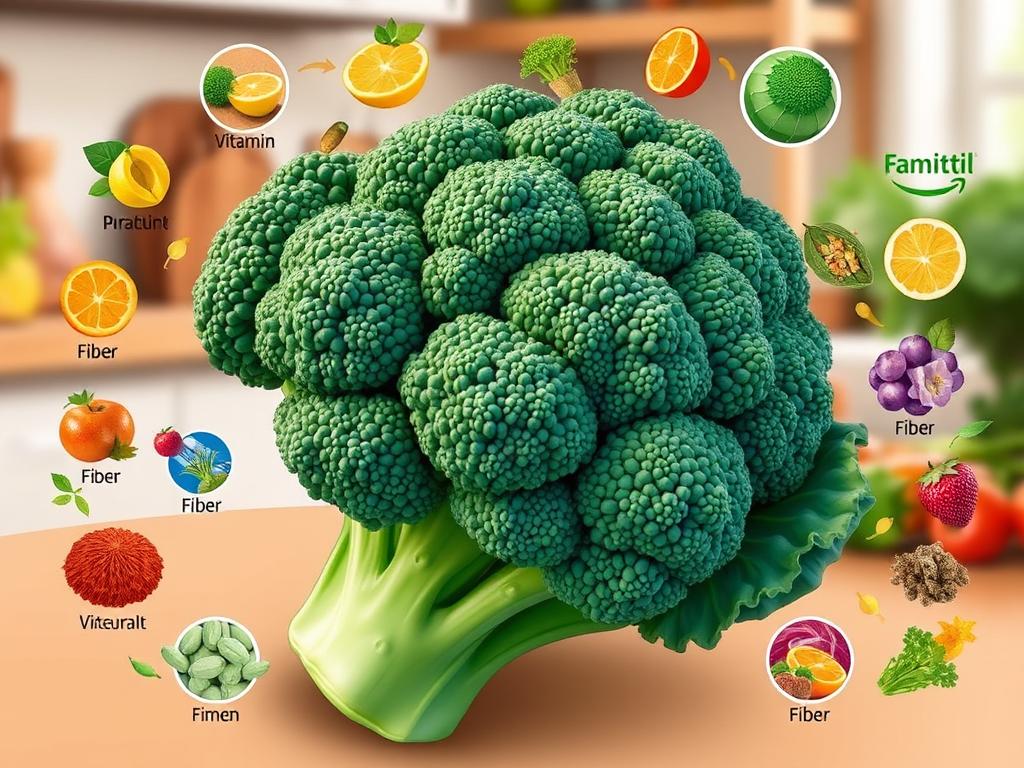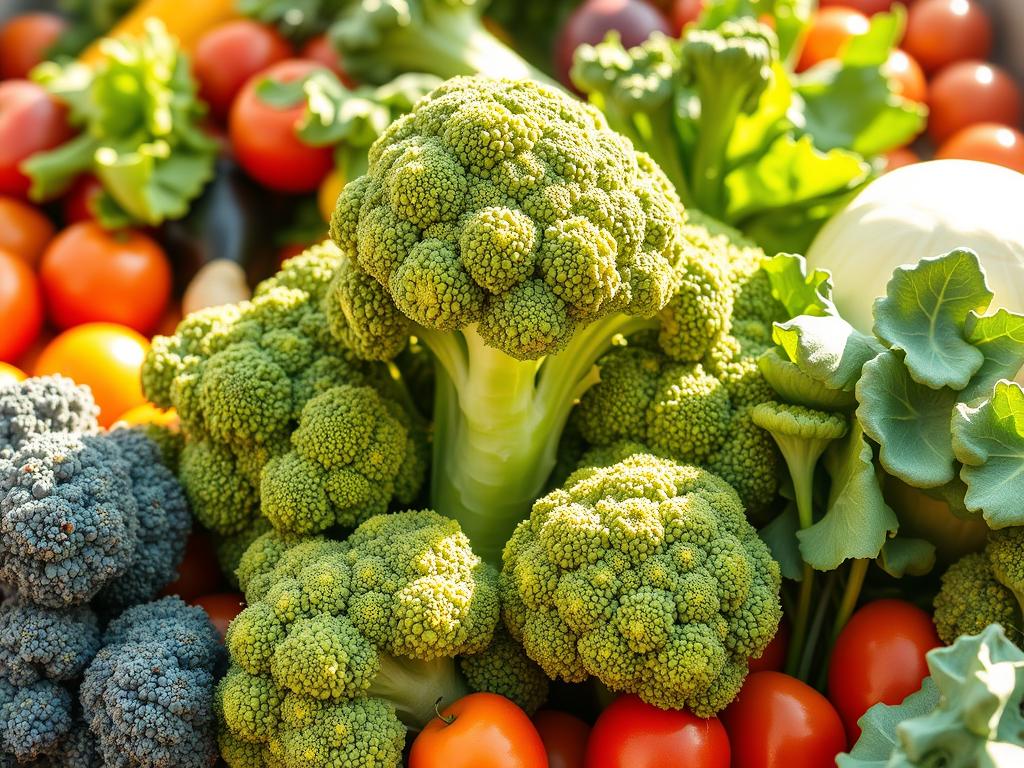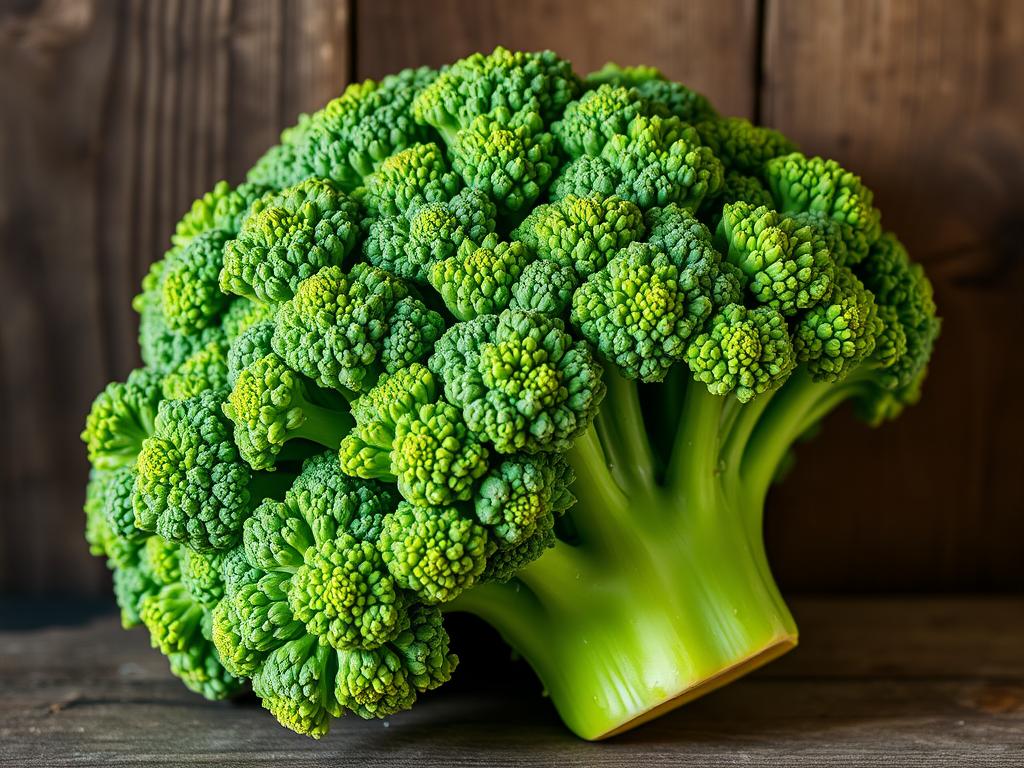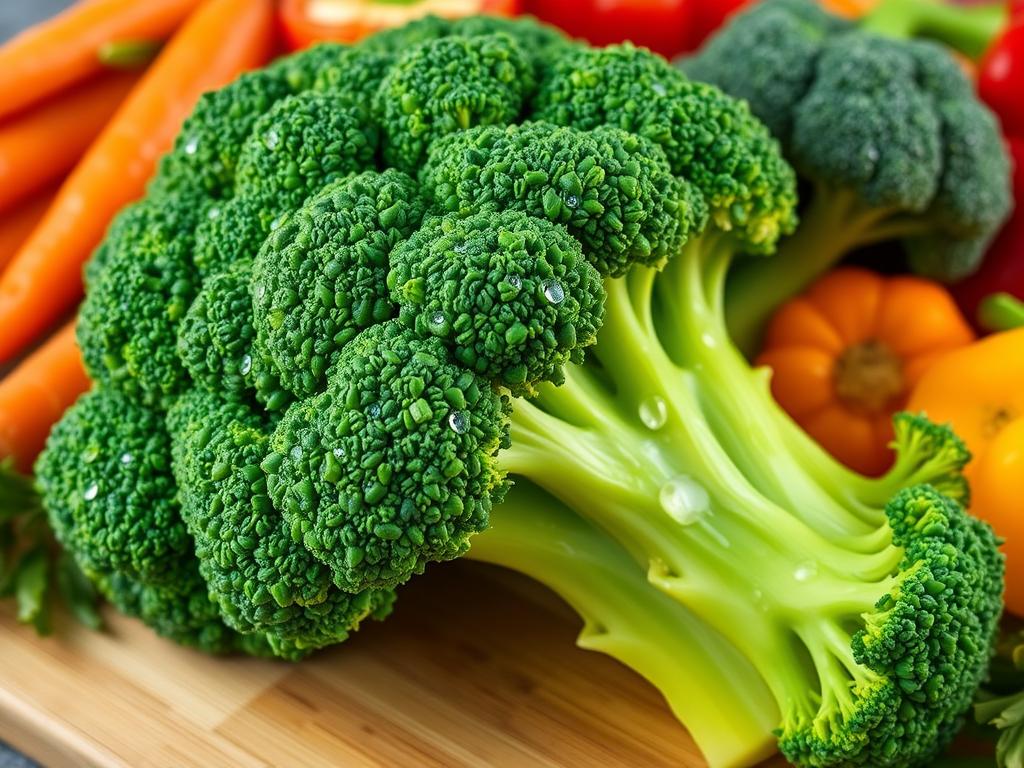Imagine standing in your kitchen, the sun streaming through the window as you chop vibrant green florets, their crisp texture promising nourishment. The nostalgia of family meals comes rushing back as you remember your grandmother teaching you how to prepare her famous pasta. Each bite filled with love and affection, reminding you that food goes beyond sustenance; it’s a bridge connecting generations.
Broccoli, scientifically known as Brassica oleracea var. italica, is not just a side dish—it’s a nutrient-rich powerhouse loaded with vitamins, minerals, and antioxidants that serve as a natural defense against many health issues. As we delve into the myriad health benefits of this vegetable for better health, you’ll discover why this humble vegetable deserves a cherished place on your plate.
Key Takeaways
- Broccoli is an excellent source of vitamins C, K, and A.
- This nutrient-rich broccoli supports immune function and heart health.
- The vegetable’s unique compounds may aid in cancer prevention.
- Broccoli’s fiber content promotes digestive health and boosts satiety.
- Incorporating broccoli into your diet can enhance overall wellness.
The Nutritional Profile of Broccoli
Broccoli is a true superfood, offering remarkable nutritional benefits in each serving. This vegetable is packed with essential vitamins and minerals, making it a staple for anyone looking to enhance their diet.With every bite, you’re fueling your body with vital nutrients that can contribute to improved health.
Vitamins and Minerals Packed in Every Bite
A single cup (90g) of raw broccoli supplies an impressive array of vitamins and minerals. Notably, it provides 91% of the Daily Value (DV) for vitamin C and 77% for vitamin K. Additionally, it includes good levels of folate, calcium, magnesium, and potassium. Here is a detailed look at some key nutrients found in this vegetable:
| Nutrient | Amount per 1 cup (90g) | % Daily Value |
|---|---|---|
| Calories | 35 | – |
| Protein | 2.3g | 5% |
| Carbohydrates | 5.6g | – |
| Fiber | 2.2g | 8% |
| Vitamin C | 82.7mg | 91% |
| Vitamin K | 93.4mcg | 77% |
| Folate | 57mcg | 15% |
Fiber Content: Enhancing Digestive Health
Broccoli’s fiber content stands at approximately 2.2g per cup, making up about 8% of the Daily Value. This fiber is known for its ability to support digestive health by promoting regularity and fostering a healthy gut environment. Ingesting fiber-rich foods like broccoli may help prevent constipation and contribute to overall gastrointestinal well-being.
Antioxidants and Their Cancer-Fighting Properties
Among the numerous health benefits of nutrient-rich broccoli are its potent antioxidants, particularly sulforaphane. This compound has gained attention for its potential role in cancer prevention by combating oxidative stress and inflammation. Research indicates that sulforaphane might inhibit cancer cell growth and reduce the risk of certain types of cancer. Including broccoli in your meals can certainly provide complementary support for your body’s defenses.

Health Benefits of Including Broccoli in Your Diet
Incorporating broccoli into your meals offers a wealth of health benefits of broccoli that can enhance overall well-being. This nutrient-dense vegetable is rich in vitamins and minerals, making it a fantastic choice for promoting better health. With its abundance of vitamin C, fiber, and antioxidants, broccoli supports various bodily functions.
Boosting Immune Function
Vitamin C plays a pivotal role in boosting immune function. A single cup of raw broccoli contains an impressive 135% of the recommended daily intake of vitamin C. This essential nutrient helps strengthen the immune system, promoting better health and aiding in the prevention of illnesses. To learn more about vitamin C’s importance for the immune system, visit this resource.
Supporting Heart Health
The health benefits of broccoli extend to the heart as well. The fiber and specific antioxidants found in this vegetable contribute to lower cholesterol levels and improved blood pressure regulation. Research shows that higher dietary fiber intake is associated with reduced risks of heart disease. Including broccoli in your diet may be a delicious way to support cardiovascular health.
Promoting Bone Strength
Broccoli is also a strong ally for maintaining bone health. This vegetable is rich in calcium and vitamin K, both of which are essential for promoting bone strength and preventing osteoporosis. Regular consumption of broccoli, along with other nutrient-rich foods, can significantly enhance bone density and overall health.

How to Prepare Broccoli for Maximum Nutritional Value
Proper preparation of fresh broccoli can significantly enhance its nutritional profile, making it a delightful addition to various meals. Different cooking methods can influence not only taste but also the vegetable’s abundant nutrients. Understanding how to incorporate this superfood into your meals can elevate your culinary experience while improving overall health.
Steaming vs. Boiling: The Best Cooking Methods
Research shows that gentle cooking methods, such as steaming, keep more nutrients intact compared to boiling. Steaming fresh broccoli for just three to four minutes is sufficient to preserve its health-boosting compounds like sulforaphane. Boiling may cause vital vitamins to leach into the water, thus diminishing the nutritional value. Opting for steaming can help ensure that your broccoli retains its cancer-fighting properties, while offering a tender-crisp texture.
Creative Ways to Include Broccoli in Meals
Fresh broccoli can seamlessly fit into a variety of dishes, enriching both flavor and nutrition. Consider these innovative approaches:
- Add steamed broccoli to stir-fries with your favorite proteins for a colorful, nutrient-rich meal.
- Mix raw florets into salads to provide a satisfying crunch.
- Incorporate it into creamy soups for added creaminess and health benefits.
- Try out exciting recipes like broccoli cheddar soup or roasted broccoli salad.
Tips for Buying and Storing Fresh Broccoli
When purchasing fresh broccoli, select heads that are firm with deep green color. Avoid any yellowing or wilting, which indicates age. For optimal storage, keep it unwashed in a breathable bag in the refrigerator. Under ideal conditions, it can last up to a month at around 32°F with 95% humidity. If you notice signs of aging, aim to use it within five days for the best flavor and nutritional benefits.

Broccoli’s Role in Disease Prevention
Broccoli serves as a vital ally in preventing various diseases, thanks to its rich composition of antioxidants, vitamins, and minerals. The range of compounds found in this vegetable not only boosts overall health but also tackles specific chronic conditions.
Fighting Inflammation with Broccoli
Chronic inflammation is a known contributor to numerous health issues, including heart disease and cancer. Broccoli’s health benefits stem largely from sulforaphane, a powerful compound that can inhibit inflammatory enzymes. This action supports the body in combating the detrimental effects of inflammation. Additionally, the high antioxidant content in broccoli neutralizes harmful free radicals, further protecting cells from damage.
Broccoli and Its Impact on Blood Pressure
Another area where broccoli excels is in blood pressure management. Regular inclusion of this cruciferous vegetable in meals can be beneficial due to its potassium content, which helps in regulating vascular functions. A diet rich in broccoli promotes cardiovascular health, reducing the risk of hypertension and associated diseases. Incorporating broccoli can enhance your overall diet while taking steps toward lower blood pressure levels.
Fun Facts About Broccoli
Broccoli, a member of the cruciferous vegetable family, boasts a rich history that dates back to the Roman Empire, originating from Italy. This delightful green vegetable has surged in recognition as a superfood over the years, praised for its dense nutrient profile and extensive health benefits. Its unique combination of antioxidants, vitamins, and minerals has made it a staple in many diets. Notably, a cup of chopped raw broccoli contains only 31 calories, making it a low-calorie addition to any meal.
History and Origin of Broccoli
The cultivation of broccoli can be traced back to ancient times, particularly in Mediterranean regions. Historical accounts suggest that it was developed through selective breeding of wild cabbage. As this vegetable made its way around the globe, its health benefits became widely recognized, resulting in its inclusion in various cuisines. Its nutritional prowess continues to increase awareness, prompting more people to embrace its delightful flavors as a superfood in their daily meals.
Interesting Varieties of Broccoli to Try
Broccoli comes in several interesting varieties, each offering unique flavors and textures. The Calabrese broccoli, known for its large green florets, is the most common type found in grocery stores. However, sprouting broccoli and purple broccoli are delightful options that add diversity to dishes. Regardless of the type, incorporating these versions of broccoli into your diet can greatly enhance your nutrient intake and support overall health. With its rich supply of vitamin C, vitamin K, and fiber, broccoli certainly deserves its title as a superfood!











